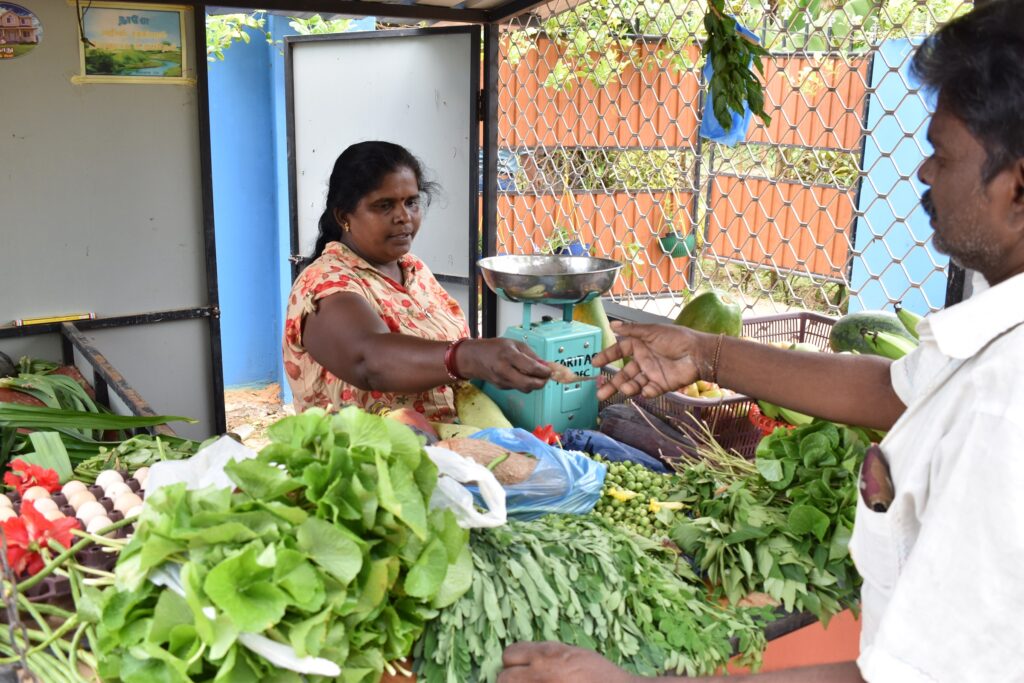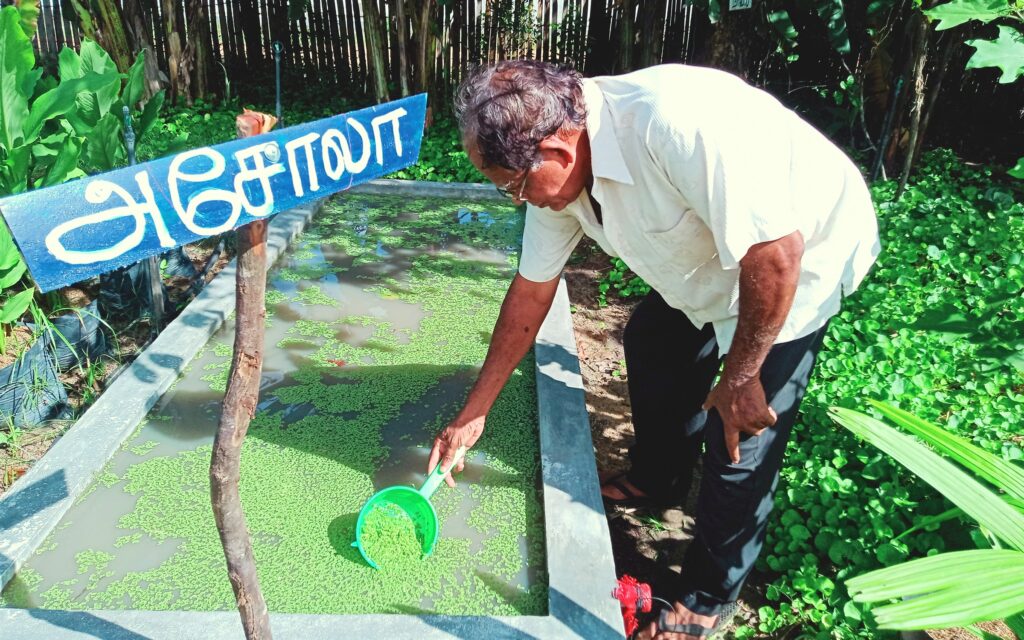Sri Lanka threatened by hunger and high debt

The IMF recently granted another loan to crisis-hit Sri Lanka, where severe shortages of medicines, food and electricity have hit the population hard. The loan will alleviate the problems somewhat, but long-term solutions - such as a more sustainable food system - are needed for the country to get out of the hole.
Underinvestment in local food production and import dependency are two triggers of the crisis, which came to a head in 2021. In the absence of currency, a ban on fertilizer imports was imposed overnight. Farmers were asked to use local organic fertilizers, which, along with climate change, contributed to widespread crop failure. As a result, food had to be imported. Many are now struggling to make a living as a result of fewer casual jobs. At the same time, the cost of living has increased significantly, and 33 percent of households are food insecure. Even basic items such as rice and legumes have become too expensive for many. This is forcing people to eat less and Sri Lanka is threatened by a serious hunger crisis.
Little optimism
To assist, the International Monetary Fund (IMF) has granted another crisis loan equivalent to NOK 30 billion. The loan is the seventeenth in a row, and and the total national debt is now over NOK 400 billion. NOK 400 billion. Inflation is still at 50%, but the government hopes to reduce this to below 10% by 2023. Like Professor Steve Hanke at Johns Hopkins University, we are not optimistic that this will happen. Without changing the institutions and the rules of the game that govern the country, as well as replacing those in power, the situation will remain the same as before.
There are solutions
Sri Lanka is not alone in struggling with debt. So do 60 percent of low-income countries and 30 percent of middle-income countries. They all need help to break the vicious circle, but how? A new report from the The International Panel of Experts on food security (iPES) points to concrete solutions.
Debt relief and adequate development finance must be provided to address the aftermath of the pandemic, ensure climate action, transform the food system and meet the Sustainable Development Goals. Financing must be gift-based to ensure long-term development and avoid further debt. The global financial and food system must also become more democratic. An independent body is proposed here, where someone other than the creditors leads the work of dealing with debt crises.
In addition, institutions such as the IMF and the World Bank must be democratized so that the world's poor, indigenous peoples and small-scale food producers are actually heard.

Threatening food safety
Like SLUG we hope that Norway will resume its role as a leading nation for fair debt policy in connection with the spring meetings of the IMF and the World Bank. The need to stabilize the world after the pandemic is great. So is the need to combat the global hunger and climate crisis.
Although the government prioritizes food security in African countries in the strategy Joining forces against hunger they must not forget Sri Lanka and other countries struggling with hunger. The situation on the island in the Indian Ocean seems hopeless, but there are bright spots. We have seen this through our food security programs where over 28,000 households have become food self-sufficient despite the country being in a severe crisis. The previous president was so impressed that during the pandemic he launched a vision that one million households should be able to participate in programs based on the same model. We hope that vision is realized.
Importing food and fertilizer
Rich countries must stop imposing conditions that make poor countries dependent on importing fertilizer and basic goods such as wheat, rice and milk. Instead, they must be enabled to produce their own food. Here, the world's 600 million small farmers play an important role, and they must strengthen their position against the large global food companies that wield far too much power. There must also be an end to the demand to export seeds and other food products that could instead be used to feed the population. Without putting sustainable food systems in place, we will never be able to solve the debt problems, and we can look far from achieving the Sustainable Development Goals by 2030.